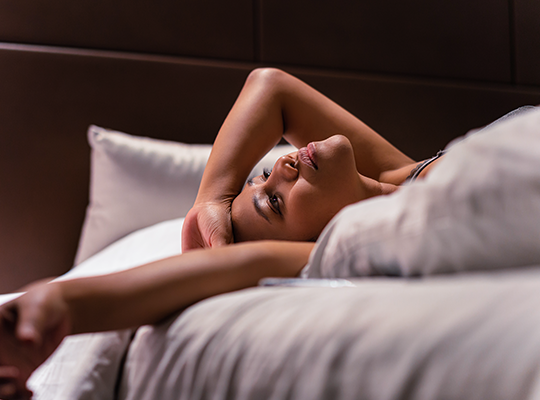
Night Sweats
What causes night sweats?
Everyone experiences night sweats at some point in their lives. They can occur if you’re too warm while sleeping. Occasionally, the causes of night sweats can also be:
- Illness or fever
- Infections
- Side effects of medication
- Heavy night clothes or bedding
- Sleep apnea
- Hypoglycemia or low blood sugar
- Alcohol or drug use
- Hyperhidrosis
- Hormone disorders
How to stop night sweats?
If you begin sweating at night, a few simple changes could improve things:
- Stay hydrated during the day.
- Wear lighter clothing in bed.
- Change your bedding to lighter fabrics or a thinner duvet.
- Keep your bedroom cool and ventilated at night.
- Avoid potential triggers, such as spicy food, caffeine, smoking and alcohol.
Ways to prevent night sweats
Your sweat glands are less active at night, so applying antiperspirant to clean, dry skin before bed will allow it to work while you sleep and into the next day.
You might want to consider using Degree Clinical Protection antiperspirant, which is clinically proven to provide extra effective sweat and odour protection. As sweating at night occurs all over the body, applying antiperspirant will only help with sweaty armpits.
If you’re experiencing excessive sweating − to the point where you regularly soak your bed sheets or have sweat patches on your clothes – you might want to speak to your doctor or healthcare professional, who will be able to offer you more advice about night sweats.